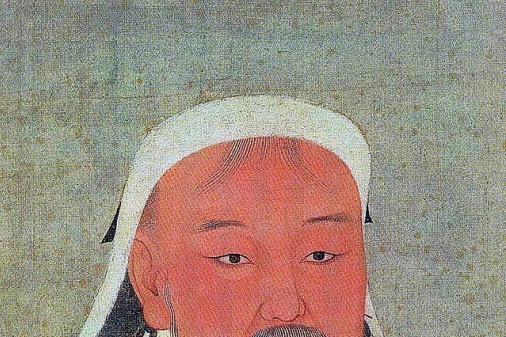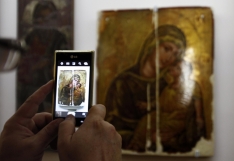
Two Christian temples have been discovered in a city founded by descendants of the Mongol conqueror Genghis Khan along the banks of the river Volga in Russia.
The city of Ukek was founded around 750 years ago. The temples, which were roofed with tiles and decorated with carvings and murals, contained the remains of imported goods such as plates and bottles which had been brought from Rome, Egypt and Iran.
The discovery of Ukek's Christian quarter was made by archaeologists from the Saratov Regional Museum of Local Lore. It was a multicultural city and a variety of religions were practised there, including Islam, Christianity and Shamanism.
After the first Christian temple was destroyed in the early 14th century, a second temple was built in 1330 and remained in use until about 1350. Part of its foundation was unearthed.
Ukek was founded a few decades after the death of Genghis Khan. It is believed that his grandson Batu Khan founded the Golden Horde kingdom stretching from Eastern Europe to Central Asia and controlled many of the Silk Road routes. Ukek attacked and destroyed in 1395 by Tamerlane, who took over much of the territory formerly ruled by the Golden Horde.
The Saratov archaeologists said that their discoveries in the Christian quarter, which included high-status items such as a Chinese glass hair pin and a fragment of a bone plate with a carved dragon image, showed that not all Christians were treated as slaves.
Modern-day buildings cover much of the historic site of the city. Archaeologist Dmitriy Kubankin told the LiveScience website: "This hampers any research and prevents complete unearthing of the entire [site], because it extends over several private land plots.
"Nevertheless, digging just in one site may lead to significant discoveries. Archaeological expeditions from the Saratov Regional Museum of Local Lore [have made] yearly excavations since 2005."
Genghis Khan was one of the most successful rulers in history, and probably the most brutal. Between 1206 and his death in 1227, he conquered nearly 12 million square miles of territory. He is thought to have been responsible for the deaths of around 40 million people.














